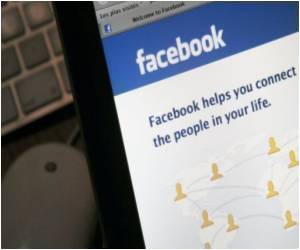The study helps us better understand when and why things go wrong in relationships, and help couples avoid the most common setbacks to romantic success.
Highlights :
- Men were found to be more emotional than women during breakup
- Also, men talk more openly about their breakups when compared to women
- Men are also more likely to seek relationship help than women in online settings
“We wanted to understand not only what relationship problems are most commonly experienced by the general public, but who experiences which problems more.”
Using natural language processing methods, the team analyzed the demographic and psychological characteristics of over 184,000 people who posted their relationship problems to an anonymous online forum.
The researchers were then able to statistically determine the most common themes that came up across each post, creating a “map” of the most common relationship problems.
Results showed that communication problems were the #1 most frequent problem mentioned, with nearly 1 in 5 people noting difficulty discussing problems, and 1 in 8 mentioning trust issues in their relationships.
“As we were conducting the study, we realized that this was an important opportunity to put a lot of common ideas about gender differences in relationships to the test” said Dr. Ryan Boyd, the lead researcher of the project. “For example, are men truly less emotionally invested in relationships than women, or is it the case that men are simply stigmatized out of sharing their feelings?”
The most common theme was about “heartache” and was comprised of words like regret, breakup, cry, and heartbroken.
Contrary to their expectations, the team’s findings showed that men discuss heartbreak significantly more than women. These findings suggest that the stereotype of men being less emotionally invested in relationships than women may not be accurate.
Charlottle Entwistle said: “Notably, the fact that the heartache theme was more commonly discussed by men emphasizes how men are at least as emotionally affected by relationship problems as women.”
Additionally, the researchers found that men were more likely to seek relationship help than women in online settings.
Dr. Ryan Boyd noted that “Traditionally, women are more likely to identify relationship problems, consider therapy, and seek therapy than are men. When you remove the traditional social stigmas against men for seeking help and sharing their emotions, however, they seem just as invested in working through rough patches in their relationships as women.”
The team’s findings have implications for the general public, as well as clinical settings. The researchers noted that developing a more accurate picture of relationship problems helps us to better understand when and why things go wrong in our relationships, potentially helping couples avoid the most common setbacks to romantic success.
The study’s authors also suggest the findings may also help to destigmatize help-seeking by showing how common many relationship problems are, and by showing that men are just as likely as women to seek help in the first place.
The researchers say that this work also points to important future directions for additional research.
“One of the most important things that we’re seeing here is that we’re able to create an incredibly accurate picture of relationship problems that everyday people face based purely on what people say online” said Dr. Boyd.
“This gives us serious hope that we can use help-seeking behavior to better understand all types of social and psychological issues, and in a way that we simply cannot do using traditional research methods.”
The study and results are published in the Journal of Social and Personal Relationships.
Source-Eurekalert










